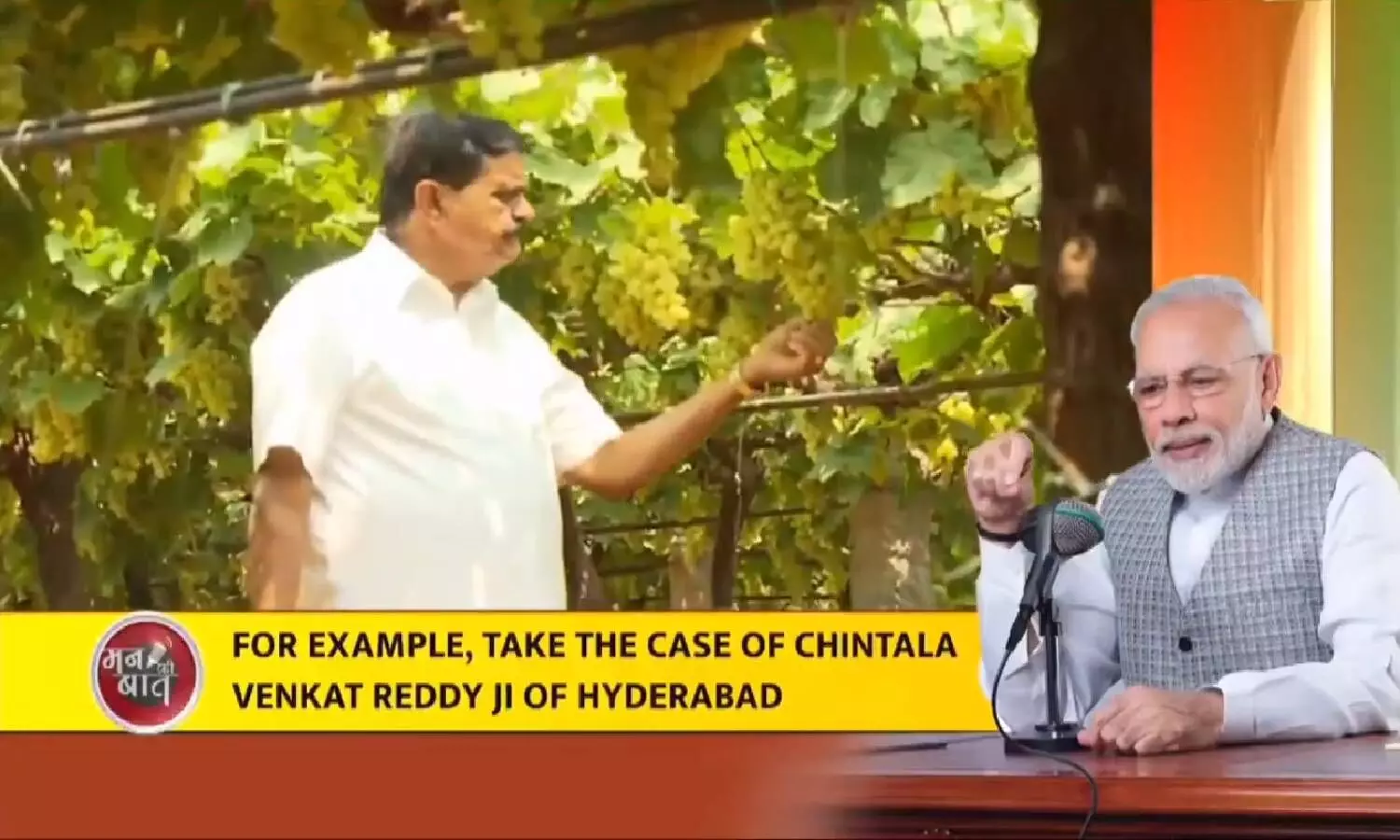Modi praises Hyd-based Padma Shri Awardee Chintala Venkat Reddy in 'Mann Ki Baat'
Prime Minister Narendra Modi during his radio talk ‘Mann Ki Baat’ on 28 February spoke about Padma Shri Awardee Chintala Venkat Reddy, a farmer from Hyderabad.
By Newsmeter Network
Hyderabad: Prime Minister Narendra Modi during his radio talk 'Mann Ki Baat' on 28 February spoke about Padma Shri Awardee Chintala Venkat Reddy, a farmer from Hyderabad.
The Prime Minister said when we talk of science then many a time people restrict it to Physics-Chemistry or labs, but the spread of science is much more than that. The power of science has made several contributions to the Atmanirbhar Bharat campaign. "We have to move science forward with the mantra of 'Lab to Land'," he added.
"Chintala Venkat Reddy ji from Hyderabad is an example. A doctor friend of Reddy ji once told him about the diseases caused by deficiency of Vitamin D and the dangers thereof. Reddy ji is a farmer. He thought about what he could do about solving this problem. He developed varieties of wheat and rice that contained Vitamin D. This month he received a patent from the World Intellectual Property Organization, Geneva. Our government is fortunate that Venkat Reddy was also honoured with the Padmashree last year," said the PM.
Hon PM @narendramodi appreciates the efforts of Sri Ch Venkat Reddy,a farmer from Hyderabad who has conceptualised &developed Vitamin D enriched wheat &Rice.
— G Kishan Reddy (@kishanreddybjp) February 28, 2021
His efforts fetched Patent from World Intellectual Property Org & was also conferred with Padma Shri last yr.#MannKiBaat pic.twitter.com/tBsXQNHAXN
Venkat Reddy, who received the Padma Shri in February 2020 for his innovations in farming, won the patent for Vitamin D-enriched rice and wheat varieties from the World Intellectual Property Organisation on 11 February 2021.
The 70-year-old farmer who lives in Alwal, Secunderabad, started to work on a technique that would enrich rice and wheat with Vitamin D naturally. Also, his innovative technique of using the subsoil as a pest repellent has helped fellow farmers avert locust attacks in their fields.